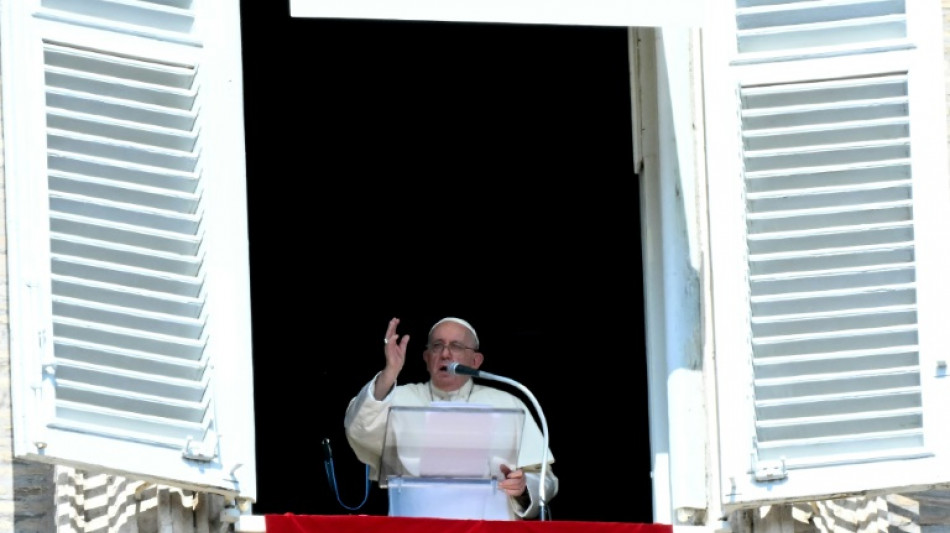Pope Francis warned Wednesday the world "is collapsing" due to global warming, urging participants of the upcoming COP28 climate talks to agree to binding policies on phasing out fossil fuels.
Eight years after his landmark thesis outlined the devastation of manmade climate change, the 86-year-old pontiff published a follow-up that warned that some damage was "already irreversible".
"With the passage of time, I have realised that our responses have not been adequate, while the world in which we live is collapsing and may be nearing the breaking point," he wrote in the 12-page letter.
But he said the next round of UN climate talks opening in Dubai on November 30 "can represent a change of direction", if participants make binding agreements on moving from fossil fuels to clean energy sources such as wind and solar.
Only a real commitment to change "can enable international politics to recover its credibility", wrote the pope.
- Climate sceptics -
His 200-page encyclical in 2015, entitled "Laudato Si" ("Praise Be To You"), was an global call to arms to protect the Earth, and sparked debate unprecedented for a religious text, including commentaries in scientific journals.
Months later, there was a breakthrough in UN climate talks in Paris, with nearly every nation on Earth committing to limit warming to "well below" two degrees Celsius above pre-industrial levels.
But the UN warned last month the world is not on track to meet these goals, while climate monitors predict 2023 will be the hottest in human history, with the Northern Hemisphere's summer marked by heatwaves, droughts and wildfires.
In Wednesday's document, entitled "Laudate Deum" (Praise God), Francis expressed hope that the forthcoming COP28 "will allow for a decisive acceleration of energy transition, with effective commitments subject to ongoing monitoring".
He referenced concerns about the UN talks being held in oil-rich United Arab Emirates, noting that while it was a "great exporter of fossil fuels" it also made "significant investments" in renewable energy sources.
"To say that there is nothing to hope for would be suicidal, for it would mean exposing all humanity, especially the poorest, to the worst impacts of climate change," wrote Francis.
The 2015 text stated clearly that humanity was to blame for global warming -- a message the pope said he felt required to repeat due to the power of climate scepticism.
On Wednesday, he described "certain dismissive and scarcely reasonable opinions that I encounter, even within the Catholic Church".
"Despite all attempts to deny, conceal, gloss over or relativise the issue, the signs of climate change are here and increasingly evident," he wrote.
- 'Irresponsible lifestyle' -
Climate change has been a major theme of Francis' ten years as head of the world's 1.3 billion Catholics, and he has drawn on science but also offered a strong moral message.
In his 2015 text, the pope blamed a pursuit of economic growth for the destruction of the planet and warned rich countries must lead the way in repairing the damage.
In Wednesday's text, he said that "regrettably, the climate crisis is not exactly a matter that interests the great economic powers, whose concern is with the greatest profit".
He also repeated a call for changes in the "irresponsible lifestyle" of rich countries,saying relying on technological innovation is not enough.
He noted that "emissions per individual in the United States are about two times greater than those of individuals living in China, and about seven times greater than the average of the poorest countries".
Many doubt the new document, originally written in Spanish, can have the same impact as the first.
But Bill McKibben, the founder of 350.org, an international environmental organisation, said: "The work of spiritual leaders around the world may be our best chance of getting hold of things.
"Yes, the engineers have done their job. Yes, the scientists have done their job. But it's high time for the human heart to do its job. That's what we need this leadership for."
M.Arya--BD
